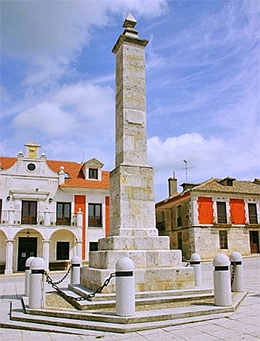Menú principal
- About Castilla y León
-
Geography and Population

-
Historical and cultural community

-
Autonomic institutions

-
Castilla y León awards

About Castilla y León

About Castilla y León
There is no doubt that nowadays the region's movement is linked to Castilla y León. However, it is an important event for the region's and Spanish history, as in that movement were involved many of the current bordering cities and regions of Castilla y León.
Which were the reasons for the Revolt of the Commoners? Within its great complexity, there were political and social reasons.

Some facts made it worse. He gave those Flemish important posts, for instance, in the Government. The situation was worsening when the King Charles I was appointed emperor, a position that foreboded long absences of the monarch, and the potential subordination of the Castilian interests to those from Flanders or from the Empire. This rejection to the policy and the king came from the cities of the Castilian plateau, that were afraid not only for the problems that could entail to Castilla the fact of being part of an international policy where the German Empire gave the orders, but also for the potential loose of the Government autonomy.
The social problems that motivated the creation of regions are difficult to explain. Each group of the Castilian society in the XVI century, took advantage of the rejection atmosphere to the young monarch to assert their particular demands. The high nobility wanted to keep their privileges and didn't agree with the lost of political power. Medium nobility wanted to recover the prominence that was losing in favour of merchants and the middle-class. The city's middle-class social groups were looking for some political participation, something only intended for urban nobility. All that has to be taken in conjunction with the struggle between important merchants and the industrialists.
Page 1 from 2